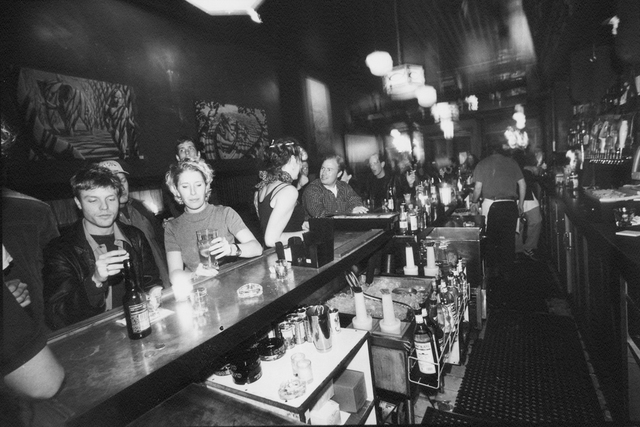In California, all the leaves are brown, and Mary Morris thinks she’s the first one to notice. In a misguided new memoir, Morris, a New Yorker and author of the acclaimed travel memoir Nothing to Declare, writes up her year teaching at Irvine in the late ’80s. She breathlessly describes crystal hawkers and purple-makeup-wearing baby-sitters, Bible thumpers and UFO worshippers. In other words, the whacked-out Left Coast cast we’ve met before in movies, magazines, and on TV. Morris could have saved herself a lot of trouble by renting a couple of Pauly Shore videos.
Her tales of various not-so-oddities are interwoven with more compelling, less thematic material that also made up Morris’ California year: She broke off an intense relationship with a married man, had a baby daughter. This is the unraveling stuff of the unresolved life, and Morris’ transparent writing is up to the task. On nursing her baby, she writes: “The rocker sits under a ceiling fan, and some days, as the morning sun streams in, I sit looking at the motionless fan and for some reason, staring into its smooth even blades, find comfort.” This is quiet writing, with an almost covert elegance, that evokes the solitude of single motherhood without lapsing into melodrama.
Angels & Aliens: A Journey West by Mary Morris Picador USA, $23
Face-Time by Erik Tarloff Crown, $23
But Morris chooses not to play to her strengths, repeatedly turning her attention instead to new-age California culture—”Eastern, but with zinc oxide,” as she calls it. By now this terrain has been dug up as thoroughly as a crystal field, yet Morris seems to think she’s forging new ground. She adds insult to lack of insight by linking her crackpot mystics to the California dreamers of history, with the kind of assertive generalizing that suggests she believes she’s onto Something Big. Never mind that this very connection is a staple of historical writing on the West. A sample of her road-worn retreads: “Nathanael West, who died in obscurity in a car crash on the Pacific Coast Highway, knew something about California and its broken dreams. He understood that people came here to reinvent themselves, but they also came to die.” In California parlance: No duh!
Westerners are weary of hearing the Eastern literary establishment hold forth on the West, often hamhandedly. (How many more times must we hear NPR commentators mispronounce Nevada as Nevahda?) Mary Morris’ California is typical in this way; it can be read as secondhand, borrowed, stolen. One suspects that she comes to the West an arrogant innocent, all unaware that her observations have been made and remade by others while she was wandering the confines of the Upper West Side.
Not that Eastern provincialism is without its pleasures. Erik Tar-loff’s novel Face-Time is so Washington, DCcentric you can practically feel the Beltway tightening around you . . . and that’s the fun of it. Ben and Gretchen meet on the campaign trail, each stumping for a different idealistic loser. Their cold-eyed understanding of the realities of political life is forged soon enough: “We watched the results of the California primary in my apartment, drinking jug wine and eating pretzels and jeering at Chuck Shef-field, our erstwhile common enemy and now our presumptive candidate . . . Gretchen and I knew we’d be voting for him in November; we even knew (although we weren’t ready to admit it) that within a week or two we’d both be vying to get positions in his campaign. It was now the only game in town.”
Soon enough, the two have jobs in the White House and “a nice yuppified condo near Dupont Circle. . . . It’s an ideal Washington existence, really, except for one awkward fact: Gretchen is fucking the president of the United States.” Tarloff, a Washington spouse (his wife has a job title involving repeated use of the word “Council”) and a contributor to speeches for the Clintons, has a firm grasp of the posturing of the Capitol’s higher primates, and he lays bare power grubbing in all its miserable glory. Sure, Ben is sad his girlfriend is having an affair, but he isn’t averse to the boost her presidential frolics give to his own career: “Whatever my personal feelings, face-time with the president was the executive branch coin of the realm; this would make me a more significant player.”
Tarloff has ample opportunity here to address the question plaguing us all: If the president is a butt-head in his personal life, does that make him unfit to lead? Face-Time sidesteps that issue. And the book is faulted on a more basic level: As with most high-concept fictions, Face-Time is a good read that never really becomes an actual novel. It lacks shape, subplot, and developed characters. But thanks to an author who fearlessly indulges his provincialism, it never, ever lacks credibility. And in Washington, credibility is all.
Claire Dederer is film editor of Seattle Weekly.





